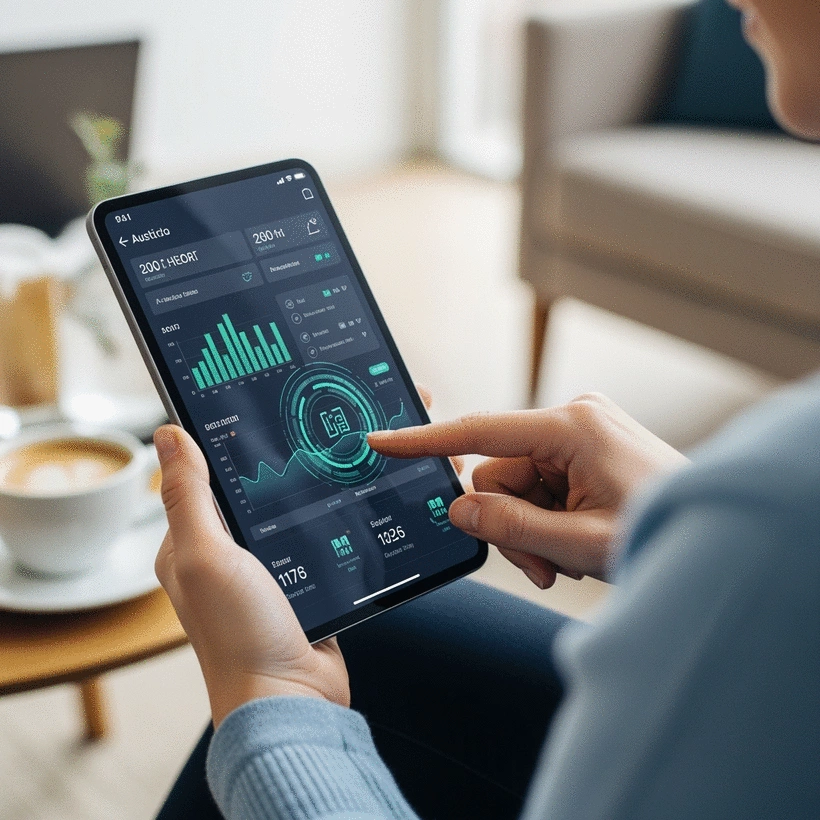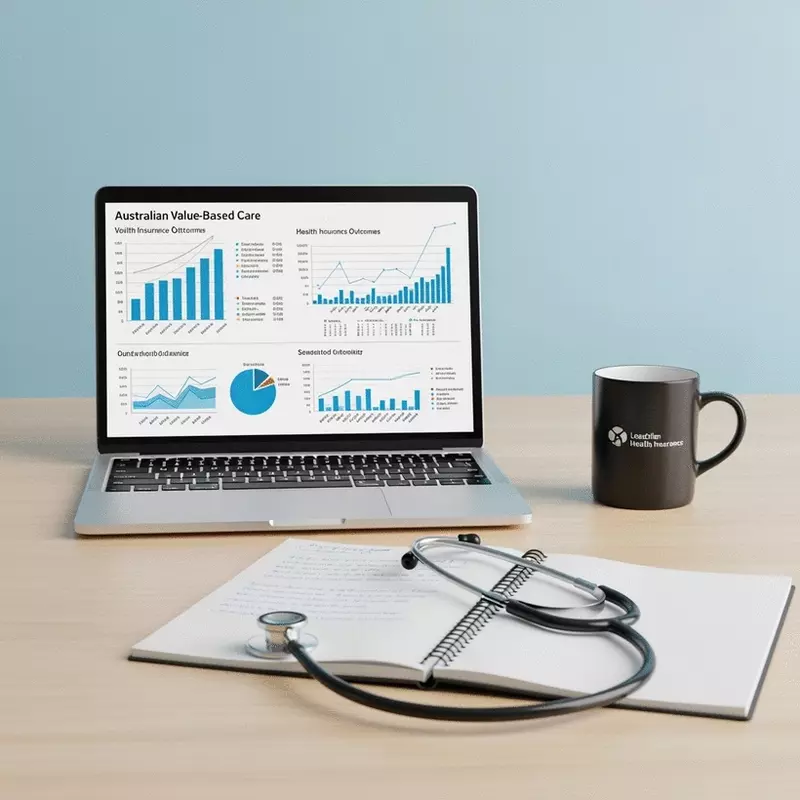AI Digital Health Tools for Australia

As we move into the future, AI-powered digital health tools are set to revolutionize healthcare in Australia. By harnessing the capabilities of artificial intelligence, these tools offer innovative solutions that enhance patient care, improve access to services, and streamline healthcare processes.
What You Will Learn
- AI healthcare tools improve diagnosis accuracy and enhance patient engagement.
- Telehealth services break geographical barriers, providing increased access to quality care.
- Wearable health devices enable real-time monitoring of vital health metrics.
- Digital therapeutics offer evidence-based interventions for chronic condition management.
- AI chatbots streamline communication, providing patients with immediate assistance.
- Health data analytics tools help in clinical decision-making to improve patient outcomes.
- Patient engagement solutions encourage active participation in healthcare journeys.
- Personalized medicine tailors treatments based on individual patient data.
Key Pillars of AI-Powered Digital Health Tools in Australia for 2025
The following visual outlines the core components and key areas of impact for AI-powered digital health tools, highlighting their transformative role in enhancing healthcare accessibility and patient outcomes.
Understanding AI-Powered Digital Health Tools in Australia for 2025
As we approach 2025, the landscape of healthcare in Australia is undergoing an exciting transformation thanks to AI-powered digital health tools. These innovations are not just fads; they're critically relevant to consumers like you, aiming to enhance access and improve the quality of care. At HealthCover Innovate, we believe that understanding these tools is essential for navigating the future of health insurance and healthcare itself.
AI healthcare tools are essentially software applications that utilize artificial intelligence to analyze data and provide insights that can significantly impact patient care. Their potential to transform healthcare services is profound, enabling more personalized, efficient, and responsive healthcare experiences.

What Are AI Healthcare Tools and Their Importance?
AI healthcare tools encompass a variety of applications, including predictive analytics, virtual health assistants, and AI-driven diagnostics. Their importance lies in their ability to process vast amounts of data quickly and accurately, leading to better-informed decisions for both patients and healthcare providers. You can learn more about enhancing health insurance with AI to understand its broader impact.
- Predictive Analytics: Tools that anticipate healthcare trends and patient needs.
- Virtual Health Assistants: Chatbots that provide immediate responses to patient inquiries and support.
- AI-Driven Diagnostics: Systems that enhance accuracy in diagnosing conditions.
- Personalized Treatment Plans: Tailored approaches to patient care based on individual health data.
The relevance of these tools to Australian consumers cannot be overstated. By leveraging AI, healthcare services become more efficient and tailored, leading to improved health outcomes and greater patient satisfaction.
Current Trends and Innovations in AI Health Tools
The advancements in AI technology are reshaping the healthcare landscape like never before. From machine learning algorithms that enhance diagnostic accuracy to wearable devices that monitor health in real-time, the possibilities are endless.
- AI-Powered Imaging: Radiology is seeing significant improvements through AI technologies that can detect abnormalities faster and with greater precision.
- Telehealth Integration: AI facilitates smoother virtual consultations, allowing for immediate patient-provider interactions.
- Data Analytics: Sophisticated health data analytics tools are enhancing clinical decision-making processes.
As someone deeply invested in healthcare innovation, I am excited to witness how these trends will not only advance technology but also improve accessibility and affordability in Australian health services.
AI-Powered Health Apps and Their Role in Patient Care
AI-powered health apps are revolutionizing the way we manage our health and wellness. These applications offer an array of features designed to engage users actively in their healthcare journeys.
- Health Monitoring: Track vital signs and receive alerts for any concerning changes.
- Personalized Recommendations: Get tailored advice based on individual health data.
- Seamless Communication: Facilitate better communication with healthcare providers.
The benefits of these apps extend beyond mere convenience; they empower users by providing tools that promote proactive health management. As we embrace these innovations, it's important to remember that our choices can greatly influence our health outcomes.
The Impact of Telehealth Services on Healthcare Accessibility
Telehealth services have emerged as a game-changing solution, particularly for those living in rural or remote areas of Australia. These services enhance access to care, breaking down geographical barriers that have long hindered healthcare delivery. Staying informed about digital health tools in Australia is crucial for consumers.
- Convenience: Patients can consult healthcare providers from the comfort of their homes.
- Increased Access: Reach specialists who may not be available locally.
- Reduced Travel Costs: Save time and money by avoiding long trips to healthcare facilities.
As someone passionate about improving healthcare access, I can attest to the significant changes telehealth is bringing to our communities. This is just the beginning, and I look forward to discussing how this evolution will continue to unfold.
Digital Therapeutics: A New Frontier in Treatment
Digital therapeutics are gaining traction as a viable option for treating chronic conditions, offering evidence-based interventions through software programs. These therapies provide a new avenue for managing health outcomes.
- Behavioral Health: Applications that support mental health conditions through therapeutic interventions.
- Chronic Disease Management: Tools designed to help patients manage conditions like diabetes and hypertension.
- Real-World Evidence: Data from digital therapeutics can inform ongoing treatment adjustments.
The efficacy of these digital solutions is incredibly promising, as they not only enhance patient engagement but also provide measurable outcomes. At HealthCover Innovate, we are excited to delve deeper into the implications of digital therapeutics for the future.

Wearable Health Devices: Monitoring Health in Real-Time
Wearable health devices, such as smartwatches and fitness trackers, have become commonplace. They offer real-time monitoring of various health metrics, encouraging active participation in personal health management.
- Continuous Monitoring: Track heart rate, sleep patterns, and physical activity effortlessly.
- Data Sharing: Easily share health data with healthcare providers for more informed care.
- Motivational Features: Set goals and receive reminders to encourage healthier habits.
While there are challenges—like data privacy concerns and device accuracy—the benefits of real-time health monitoring are undeniable. I believe we are just scratching the surface of what wearables can do for our health.
Health Data Analytics and Its Influence on Decision Making
Health data analytics tools are pivotal in supporting clinical decision-making. By analyzing patient data, they provide insights that enhance patient care and outcomes.
- Predictive Models: Use historical data to anticipate future health risks.
- Quality Improvement: Identify areas for improvement in clinical practices.
- Patient Stratification: Tailor interventions based on patient risk profiles.
The impact of health data analytics on decision-making is profound. I am particularly enthusiastic about how these tools will lead to not only better patient outcomes but also a more efficient healthcare system overall.
The Role of AI Chatbots in Healthcare Communication
AI chatbots are revolutionizing healthcare communication by facilitating immediate patient interaction. They serve as a bridge between patients and healthcare providers, streamlining inquiries and providing support.
- 24/7 Availability: Patients can receive assistance at any time of day.
- Quick Responses: Address common questions and concerns rapidly.
- Appointment Scheduling: Simplifies the process of booking consultations.
These chatbots not only enhance patient engagement but also free up healthcare professionals to focus on more complex care needs. At HealthCover Innovate, we see this as a significant step toward improved patient experiences.
Remote Patient Monitoring: Enhancing Chronic Disease Management
Remote patient monitoring (RPM) is becoming a key component in managing chronic diseases. By utilizing technology to monitor patients' conditions from their homes, we are witnessing a shift in how healthcare is delivered. This is particularly relevant in the context of digital health policies and insurance, which are adapting to these new technologies.
- Real-Time Feedback: Patients receive immediate insights into their health status.
- Proactive Interventions: Healthcare providers can act quickly to address any concerns.
- Enhanced Patient Engagement: Encourages patients to take an active role in managing their health.
This approach not only improves health outcomes but also fosters a deeper relationship between patients and their healthcare teams. I’m excited to see how this trend evolves!
Personalized Medicine: Tailoring Treatments with AI
Personalized medicine represents a significant advancement in how treatments are designed and delivered. By leveraging AI to analyze genetic, environmental, and lifestyle factors, healthcare providers can create customized treatment plans.
- Targeted Therapies: Focus on treatments specifically beneficial for individual patients.
- Improved Efficacy: Treatments are more likely to be effective when tailored to patient needs.
- Minimized Side Effects: Reduces the likelihood of adverse effects from treatments.
With my passion for enhancing consumer access to healthcare, I find personalized medicine to be a powerful tool in the ongoing quest for better health outcomes.
Clinical Decision Support Systems and Their Impact on Care
Clinical decision support systems (CDSS) leverage AI to enhance clinical outcomes significantly. These systems provide healthcare professionals with accessible, data-driven insights that guide treatment decisions.
- Evidence-Based Recommendations: Offer clinicians the best available options for patient care.
- Reduced Errors: Help prevent potential misdiagnoses and treatment mistakes.
- Streamlined Workflow: Integrate seamlessly into clinical operations for efficient decision-making.
As we continue to explore AI in healthcare, the role of CDSS will be pivotal to improving not only patient care but also operational efficiencies.
Health Management Platforms: Integrating Patient Care
Health management platforms are evolving as comprehensive solutions that integrate various healthcare services. These platforms aim to streamline patient care by offering a unified approach to health management.
- Holistic View: Patients receive a complete picture of their health metrics and treatment plans.
- Improved Coordination: Facilitates collaboration between different healthcare providers.
- Enhanced Patient Experience: Simplifies the healthcare journey for users.
By embracing these platforms, we can enhance care coordination and improve overall health outcomes. I am enthusiastic about how innovations like these will shape the future of healthcare.
AI in Radiology: Revolutionizing Diagnostics
AI technologies are making profound advancements in the field of radiology, enhancing diagnostic processes significantly. These tools are designed to assist radiologists by improving accuracy and speed in interpreting medical images.
- Faster Diagnoses: AI can analyze imaging data more quickly than traditional methods.
- Higher Accuracy: Reduces the likelihood of false positives and negatives.
- Advanced Image Analysis: AI can detect subtle changes in images that may go unnoticed by the human eye.
The revolution in diagnostics through AI is not only exciting but critical for improving patient outcomes across the board. I can’t wait to see how these technologies will continue to evolve!
Health Behavior Change Apps: Encouraging Healthy Choices
Health behavior change apps are designed to encourage users to make healthier lifestyle choices. By leveraging AI, these apps provide personalized nudges and support to foster positive habits.
- Tailored Challenges: Users can engage with customized challenges that align with their health goals.
- Progress Tracking: Monitor achievements and setbacks to stay motivated.
- Community Support: Connect with others on similar health journeys for encouragement.
As someone who values the importance of proactive health management, I find these apps to be powerful tools that can drive real change in individual behavior.
The Future of Digital Health Policy in Australia
The evolving landscape of digital health policy in Australia will play a crucial role in shaping healthcare innovation. As digital tools become more integrated into the healthcare system, policy needs to adapt effectively.
- Regulatory Frameworks: Establish guidelines for the use and development of digital health tools.
- Funding Initiatives: Support innovation through grants and investments.
- Data Privacy Protections: Ensure the security of patient information in digital health environments.
I believe that thoughtful policies will empower innovation while safeguarding consumers. At HealthCover Innovate, we are committed to exploring these developments closely.
AI-Driven Risk Assessment Tools for Proactive Healthcare
AI-driven risk assessment tools are becoming essential for identifying and mitigating health risks proactively. By analyzing data, these tools can predict potential health issues before they become serious.
- Early Detection: Identify risk factors and symptoms early on.
- Informed Decisions: Allow healthcare providers and patients to make proactive choices.
- Tailored Prevention Plans: Create personalized plans based on individual risk profiles.
The potential for these tools to enhance preventive care is immense. I am excited to see how they will shape the future of healthcare delivery in Australia.
Patient Engagement Solutions: Enhancing Involvement in Care
Patient engagement solutions are vital in fostering active participation in healthcare. These tools empower patients to take charge of their health journeys.
- Education Resources: Provide patients with the knowledge needed to make informed decisions.
- Feedback Mechanisms: Facilitate communication between patients and providers.
- Goal Setting: Encourage patients to set and achieve their health objectives.
At HealthCover Innovate, we recognize the importance of patient engagement in driving health outcomes. As we move forward, integrating these solutions will be key to a healthier future.
The Role of Virtual Health Assistants in Streamlining Care
Virtual health assistants are becoming increasingly popular in streamlining patient care. These AI-powered tools offer support and assistance to patients at various stages of their healthcare journeys.
- Appointment Reminders: Help patients keep track of their medical appointments.
- Information Access: Provide quick access to health information and resources.
- Care Coordination: Facilitate communication between patients and their healthcare teams.
The rise of virtual health assistants is an exciting development, and I look forward to seeing how they enhance patient experiences in the future.
Mobile Health Data Security: Protecting Patient Information
As digital health tools proliferate, the security of mobile health data has become a paramount concern. Protecting patient information in this digital age is crucial for maintaining trust in healthcare systems.
- Encryption Techniques: Employ robust encryption methods to secure data.
- User Authentication: Implement strict user authentication measures for accessing sensitive information.
- Regular Audits: Conduct audits to identify and address potential vulnerabilities.
At HealthCover Innovate, we are dedicated to promoting best practices in data security, ensuring that consumer health information remains private and protected.
The Future of Health Equity Technology Solutions in Australia
As we look ahead, the need for technology solutions that promote health equity across diverse populations is more critical than ever. We must ensure that everyone, regardless of their background, can access the benefits of digital health tools.
- Inclusive Design: Develop health solutions that cater to various needs and capabilities.
- Community Engagement: Involve communities in the design process to address unique health challenges.
- Training and Support: Provide education and resources to help all populations utilize these technologies.
At HealthCover Innovate, we are committed to advocating for health equity in the digital age, ensuring that all Australians can benefit from the innovations reshaping our healthcare system.
Pro Tip
To maximize the benefits of AI-powered health tools, consider integrating them into your daily routine. For example, use health apps that sync with wearable devices to track your health metrics closely. This proactive approach not only helps you stay informed about your health but also empowers you to make data-driven decisions that can enhance your well-being.
Frequently Asked Questions About AI-Powered Digital Health Tools in Australia for 2025
What are AI-powered digital health tools?
AI-powered digital health tools are software applications and devices that use artificial intelligence to analyze health data, provide insights, and support patient care. They include predictive analytics, virtual health assistants, AI-driven diagnostics, and personalized treatment plans.
How do AI healthcare tools benefit Australian consumers?
These tools enhance access to care, improve diagnostic accuracy, streamline healthcare processes, and offer personalized health management. They lead to better health outcomes and greater patient satisfaction by making healthcare more efficient and tailored.
What role do telehealth services play with AI integration?
Telehealth services, augmented by AI, break down geographical barriers by enabling virtual consultations and expert advice regardless of location. AI makes these platforms more intuitive, providing tailored recommendations and facilitating timely follow-ups without physical visits.
What are Digital Therapeutics?
Digital therapeutics are evidence-based interventions delivered through software programs that help manage and treat chronic conditions. They offer new avenues for behavioral health support, chronic disease management, and provide measurable outcomes to enhance traditional therapeutic approaches.
How do wearable health devices contribute to personal health management?
Wearable health devices continuously monitor vital health metrics like heart rate, sleep patterns, and physical activity in real-time. They provide valuable insights, encourage data sharing with healthcare providers for informed care, and offer motivational features to promote healthier habits.
Recap of Key Points
Here is a quick recap of the important points discussed in the article:
- AI healthcare tools enhance diagnosis accuracy and improve patient engagement.
- Telehealth services improve accessibility, especially in remote areas.
- Digital therapeutics provide evidence-based interventions for chronic conditions.
- Wearable health devices enable real-time monitoring of health metrics.
- Clinical decision support systems enhance treatment accuracy and efficiency.
- Patient engagement solutions empower individuals to take charge of their health.
- Robust mobile health data security is essential for maintaining patient trust.








